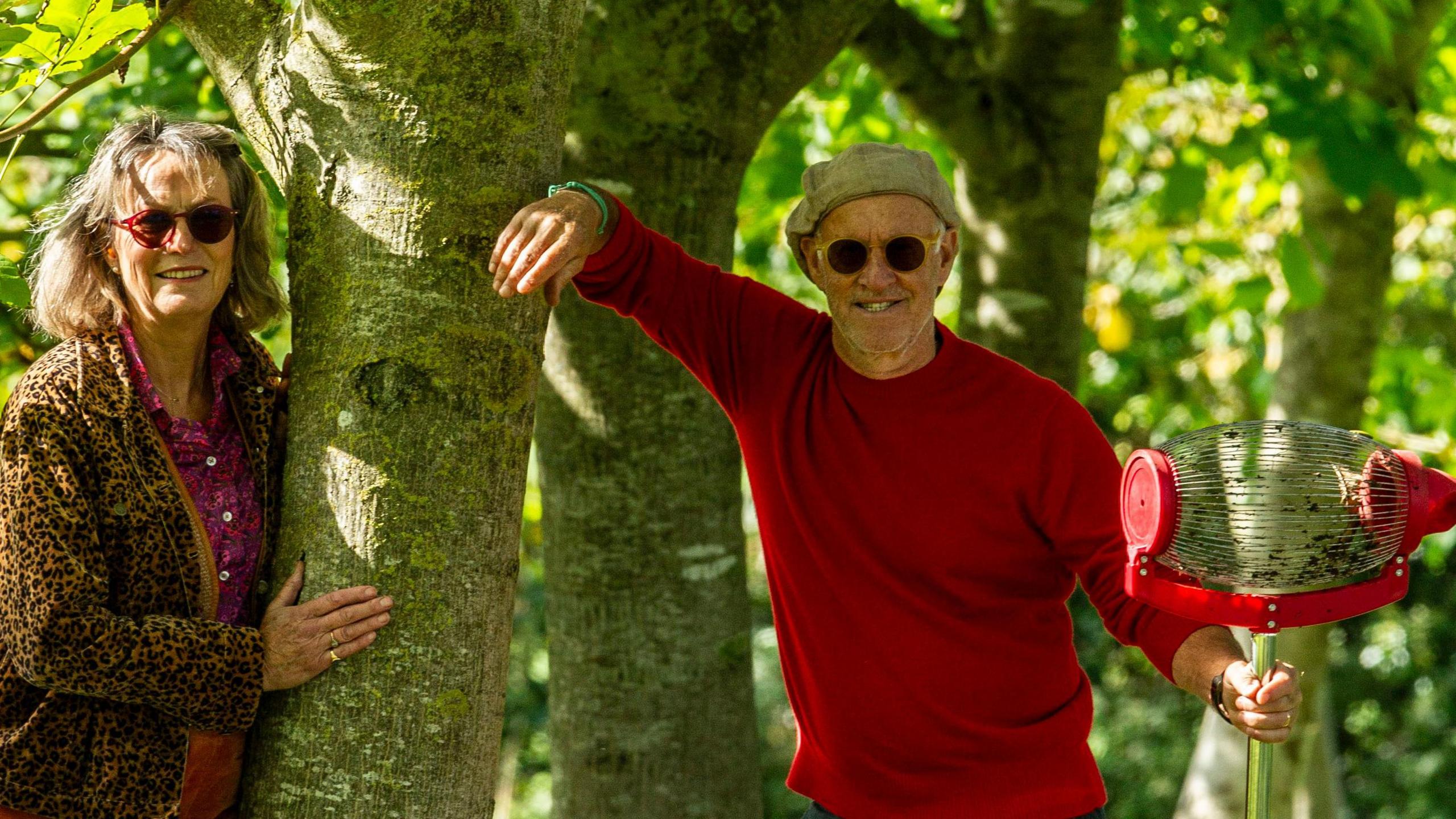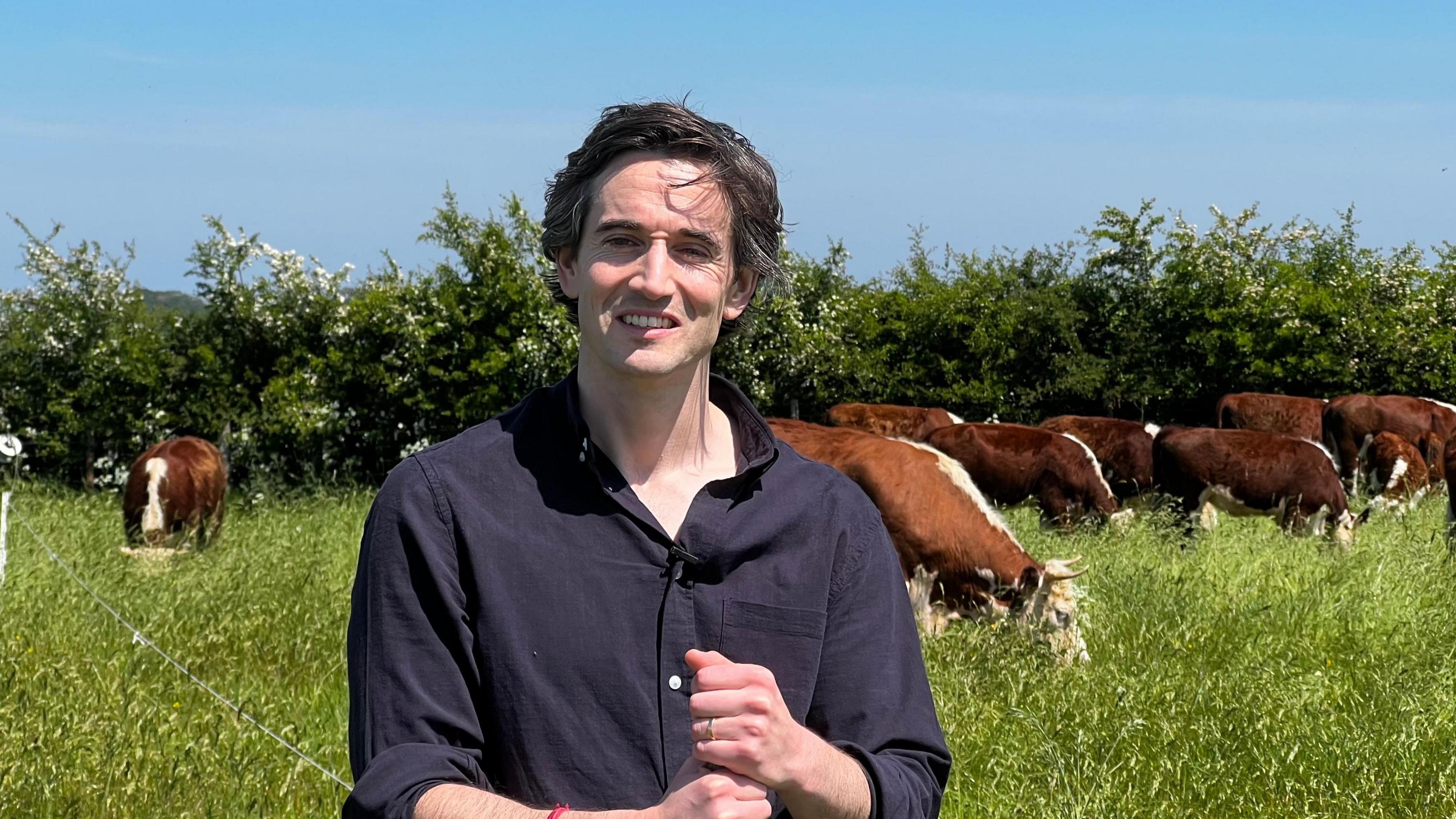Date growers hope to turn desert green as new lab opens

The Somerset firm has become a world leader in producing date plants
- Published
Plant scientists at a world-leading firm that grows date palms in the UK are helping to turn an Indian desert green as they open a new state-of-the-art lab.
Although the British climate is too cold to grow the fruit, young date plants can be produced in climate-controlled labs and greenhouses.
Date Palm Developments (DPD), near Glastonbury, Somerset, has been steadily expanding and now grows more than 350,000 date plants a year, exporting to 30 countries with its 60-strong team.
Ajit Singh Batra, from the Indian company Atul Ltd, said he has "browsed the whole world, from the Middle East, Africa and Europe, and found DPD in UK was the best".
His company has invested £11m into DPD over the past decade so the Somerset firm can expand its labs to produce thousands of date palms. Mr Batra explains the goal is "to help combat desertification".
The dates will be planted in the arid Thar Desert of northern India to help reclaim the land and create employment.
So how did a small plant breeder in Somerset end up selling tropical plants all over the world?

The tender date shoots are first brought on in a sterile lab under lights designed to maximise photosynthesis
Joanne Bayley, the chief operating officer at DPD, explains that working in Somerset, with no date plantations outside, is actually an advantage.
We are standing in a huge state-of-the-art greenhouse. The air temperature is kept at a minimum 18C (64F). Timed irrigration systems deliver water, harvested from the rain, in exactly the right amounts.
Next door, baby date shoots sit in precisely formulated growing gels, under lights set to the perfect frequency for photosynthesis. The whole lab is a sterile 'clean room', similar to what I have seen in aerospace facilities.
But Mrs Bayley points out that the process is remarkably similar to what amateur gardeners do in a potting shed, taking a cutting from a much-loved rose to grow another.
Traditionally, date palms are also grown from off-shoots.
But take one cutting from a palm tree, you get a single new tree. In a tissue culture lab, they take a few small pieces of the plant, and grow thousands of new plants from each one.
What's more, each plant will be identical.

Ms Bayley said the firm can guarantee farmers their plants are free from pests and disease
I watch as a lab technician separates young shoots with a sterile scalpel and forceps. Each shoot is then placed in a carefully formulated gel, which encourages it to grow roots.
Ms Bayley explains because there are no date plantations outside, they do not have any pests and diseases of date palms.
"So we can guarantee when the farmer has them, they're uniform plants, they're free from pests and diseases and therefore they're in very high demand," she added.
The Somerset firm has grown, like its date plants, from small beginnings. They now produce over 300,000 date plants a year, and sell all over the world.
"We export to the Middle East, also to India, places like Thailand, Australia, Peru in South America."
In the last decade, DPD's partnership with an Indian company has really borne fruit.
Atul Ltd is one of India's oldest companies, founded with the modern state of India in 1947. It has numerous divisions, and the agricultural team have a huge vision.
No less than "greening a desert".

The Indian firm has planted thousands of date palms in the Thar desert to reclaim the land for agriculture
"We have the Thar Desert in India," Ajit Singh Batra tells me, on a video call to his office in Atul, the town built by, and named after, the company.
The Atul team are planting thousands of date palms across the region.
"It will also create an ecosystem within the desert which can help mitigate urbanisation, and produce income for farmers," he said.
The company needed to find hundreds of thousands of young date plants, all of which must be disease-free, and guaranteed to fruit.
Mr Batra's team went searching for dates "across the globe".
They visited labs in the Middle East, Saudi Arabia, and Europe.
"We found that DPD Limited in the UK was the best in terms of product quality, reliability, consistency, and true-to-typeness and disease-free plants," he added.
And so one of the world's most arid regions will be planted with date palms produced in the Somerset wetlands.
Get in touch
Tell us which stories we should cover in Somerset
Follow BBC Somerset on Facebook, external and X, external. Send your story ideas to us on email or via WhatsApp on 0800 313 4630.
Related topics
- Published14 October

- Published29 May
